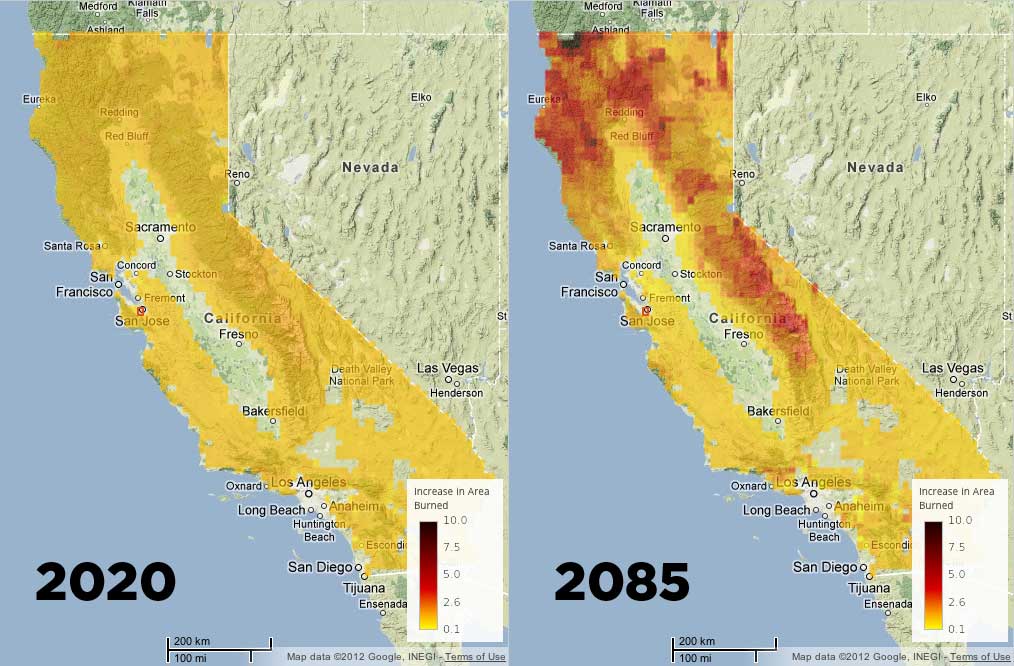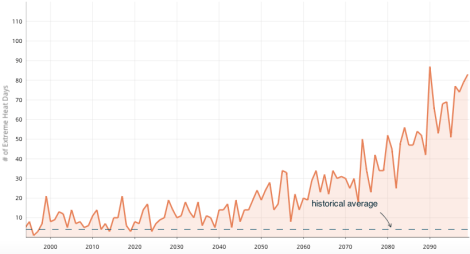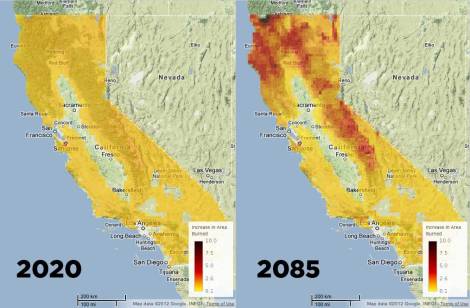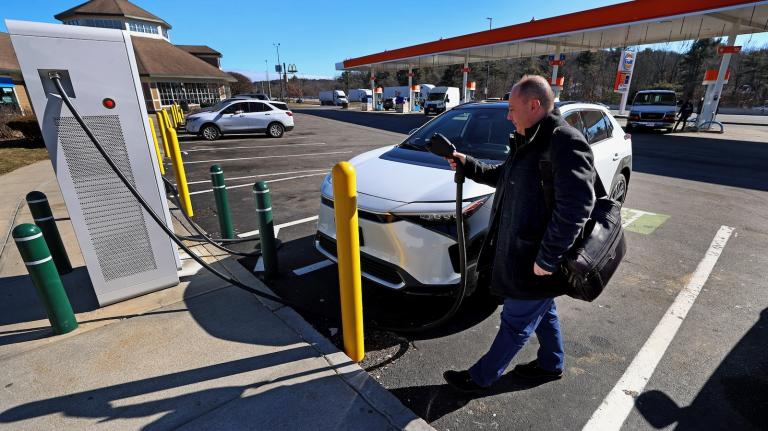Between 1961 and 1990, California cities averaged four extreme heat days a year. Last week, the state’s Climate Action Team projected how that figure would change by 2050 and 2099 for several large cities. From the report [PDF]:
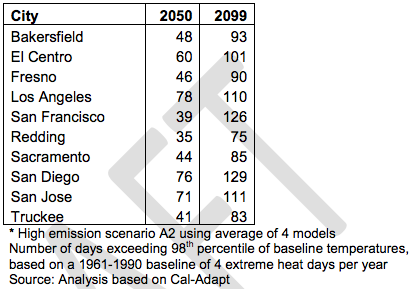
Bakersfield and Fresno, cities in the already-warm Central Valley, will see a number of days with extreme heat — at least 105 degrees — equivalent to three solid months. Temperate San Francisco, known for its not-warm summers, could eventually experience 126 days of extreme heat annually — more than one-third of the year, though at a much more acceptable 77 degrees. In San Jose, where extreme heat means a day of 90 degrees or more, almost four months of the year will see those temperatures.
A separate website, Cal-Adapt.org, models the extreme heat day growth by year (though it doesn’t seem to match the data above). Here’s how the number of extreme heat days in San Francisco is expected to grow under a high-emissions scenario. (Spoiler: There’s no point in modeling under a low-emissions scenario any more.)
There’s a corollary risk, one seen already in some parts of California this summer: wildfire. The maps below show the increase in predicted wildfire area between 2020 and 2085.
The Climate Action Team task force outlines both the health effects of such widespread heat and some proposed methods to combat the rise. Increased use of porous pavement, for example, could combat the urban heat island effect. Other proposals involve increased green space in cities — though that will be of little help in parched areas like Bakersfield.
Cal-Adapt also has a tool that offers an overview of predicted impacts for regions of the state. If you’re trying to find the best place to buy — a location with low extreme heat, low risk of fire, and perhaps adjacent to a location soon to be on the coast — this is the tool for you.
Then you only have to worry about earthquakes.

